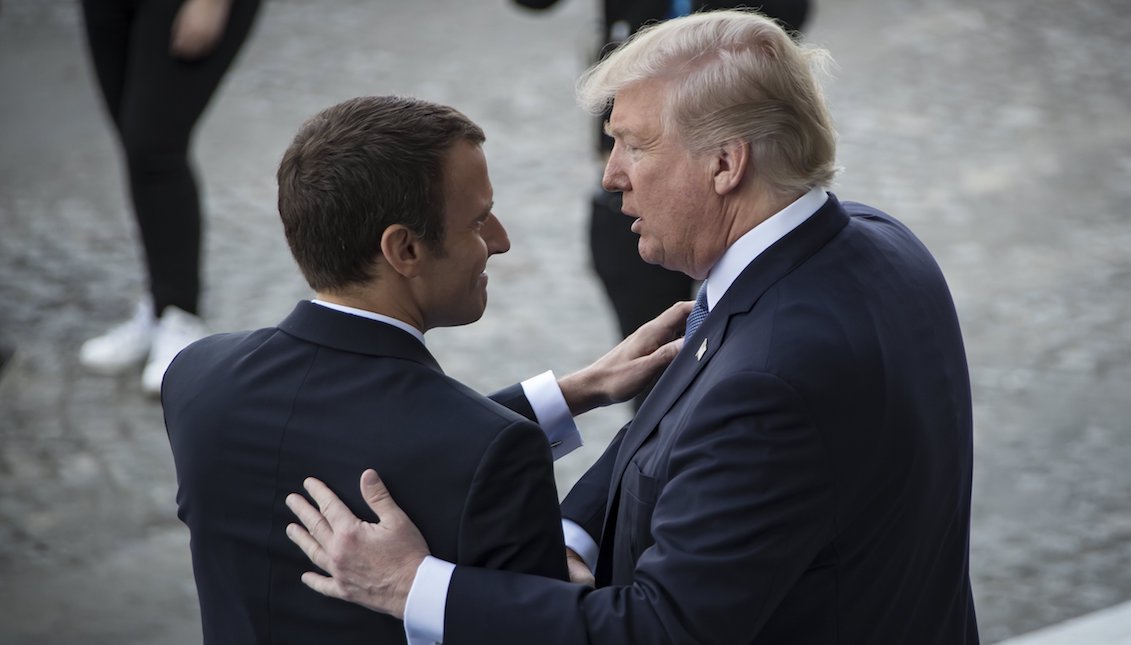
Trump in Paris: opposites meet
The visit of the American president to the French capital, as a guest of honor at the celebrations commemorating the storming of the Bastille, represents the…
The political strategy of the newly elected President of France, Emmanuel Macron, seems to be the most intelligent way to handle a counterpart whose positions are radically different, and which is not entirely welcome in Europe.
Among protests in the French capital by environmentalist activists, President Trump bienvenue was quite different from the one he received in Saudi Arabia or Poland, for example.
National media announced the arrival of the American president between headlines like "A Paria in Paris" (Libération), "Macron plays au pair" (Franceinfo) and "Friendly message and political symbol" (L'Opinion); the most critical public opinion has perceived the American visit more as a strategy than as an alliance.
July 14 marks the 100th anniversary of the United States' entry into the First World War, and President Macron did not want to miss the opportunity, especially in a political circumstance in which the young president is outstripped by his important Presidential victory and consequent parliamentary one, very unlike his American counterpart.
Macron had previously received Vladimir Putin at the Palace of Versailles for the opening of an exhibition celebrating the three hundredth anniversary of the visit of Tsar Peter the Great to Paris. According to analyst Bruno Tertrais of the Foundation for Strategic Research, the French president would be treating Donald Trump "even better than Vladimir Putin, underlining the importance of an alliance with Washington," the French daily Le Monde reported.
RELATED CONTENT
But such a political symbol causes disagreements of opinion in a Europe where both Germany and England perceive the US president as a threat to international agreements, especially after his withdrawal from the Paris Agreement.
Emphasizing common points, the French president said in an interview Thursday, "we have one common ground that is essential: the fight against terrorism and the protection of our vital interests," asserting that "both in the Middle East as in Africa, our cooperation with the United States is exemplary." In this way, Macron has made clear his interest in teaching Trump "the French way" of doing politics, with the clear hope that the US president will reconsider his international positions.
Macron's diplomatic advantage over Trump was undeniable during the day. Not only was the non-verbal language of presidential couples evident in the images streamed through social media, but also the insistence and gallantry presented by the American president stuck in despair for an ally across the Atlantic to improve Washington’s current circumstance in world’s politics.
The comparative factor is inevitable when it comes to political characters. In a France that is paving the way for a new style of "independent" government, with a president who embodies diplomacy, youth and innovation, the United States is represented by a very disadvantaged person, who seeks in the street what he is being denied at home: approval and recognition.











LEAVE A COMMENT: